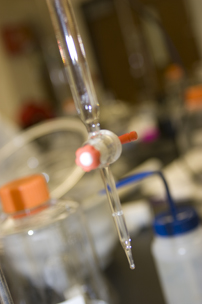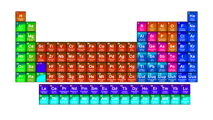Summary
 The practice of chemical analysis requires the chemist to have broad experience and sufficient intuition so as to enable them to successfully analyze real samples using one or more of the widely ranging classical or instrumental methods. Every participant in this course should gain the competence to follow a standard procedure, operate the equipment in a safe manner, collect suitable data, evaluate the reliability of the data collected, and report the results in an appropriate form as would be required of any competent laboratory technician. Analysis of small samples is emphasized using methods such as titrimetry, gravimetry, spectrophotometry, and chromatography. Statistical analysis of experimental results is emphasized as well as an in-depth discussion of chemical equilibria and the effect of competing chemical processes on the quality of analytical results,
The practice of chemical analysis requires the chemist to have broad experience and sufficient intuition so as to enable them to successfully analyze real samples using one or more of the widely ranging classical or instrumental methods. Every participant in this course should gain the competence to follow a standard procedure, operate the equipment in a safe manner, collect suitable data, evaluate the reliability of the data collected, and report the results in an appropriate form as would be required of any competent laboratory technician. Analysis of small samples is emphasized using methods such as titrimetry, gravimetry, spectrophotometry, and chromatography. Statistical analysis of experimental results is emphasized as well as an in-depth discussion of chemical equilibria and the effect of competing chemical processes on the quality of analytical results,
While the major foci are on the principles and capabilities of selected analytical methods and techniques, the specific goals are that every participant will…
...recognize and appreciate the value of the analytical instruments used, and their limitations, in the solution of selected problems faced by the technician.
...understand that the selection of one method as being superior to another in the resolution of a particular analytical problem, is based on such factors as sensitivity, time required, selectivity, the economics involved, etc.
...understand that the success of any of the analytical methods used depends upon a working knowledge and control of the chemical reactions, operating parameters, accuracy and precision required, and time available.

